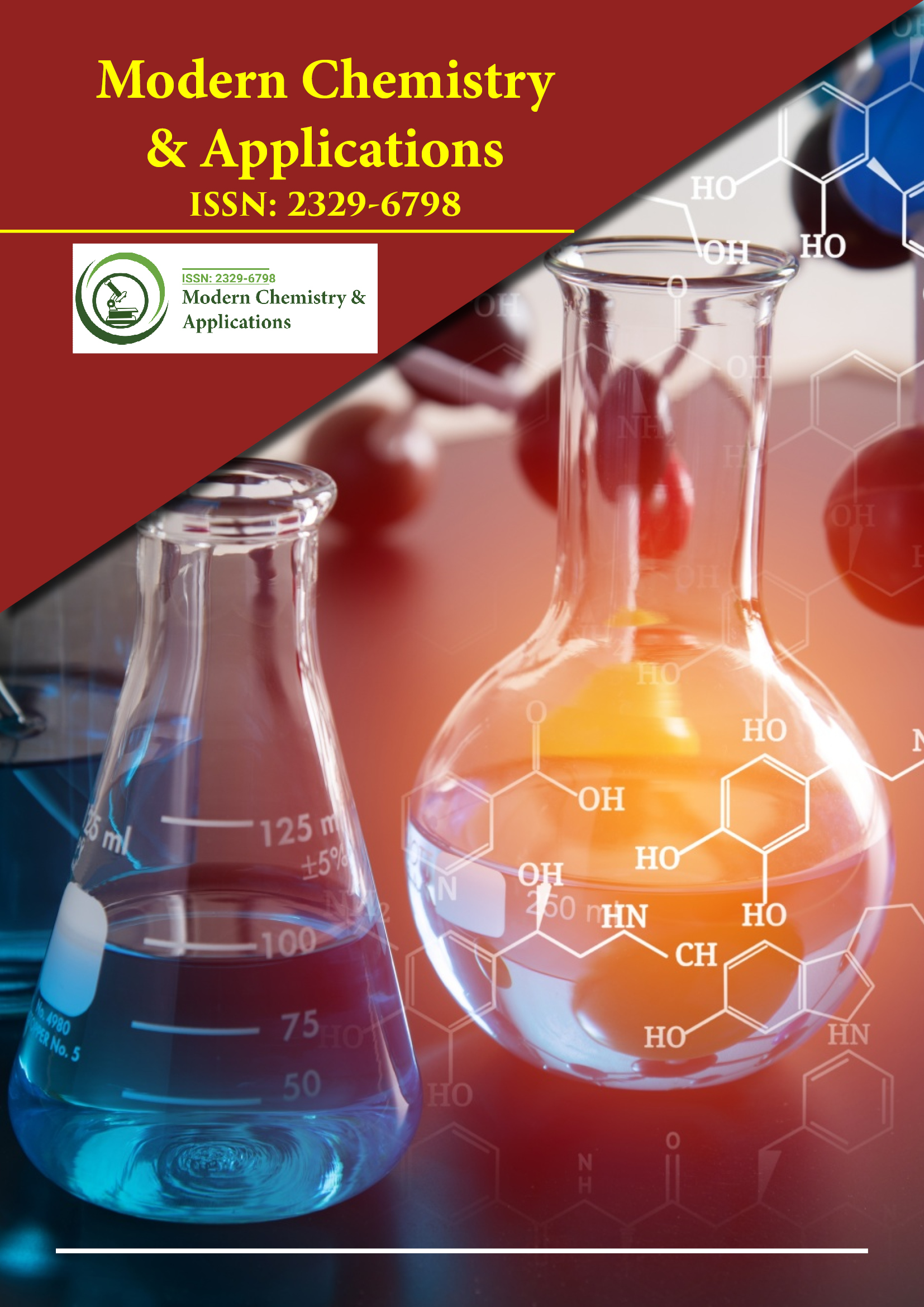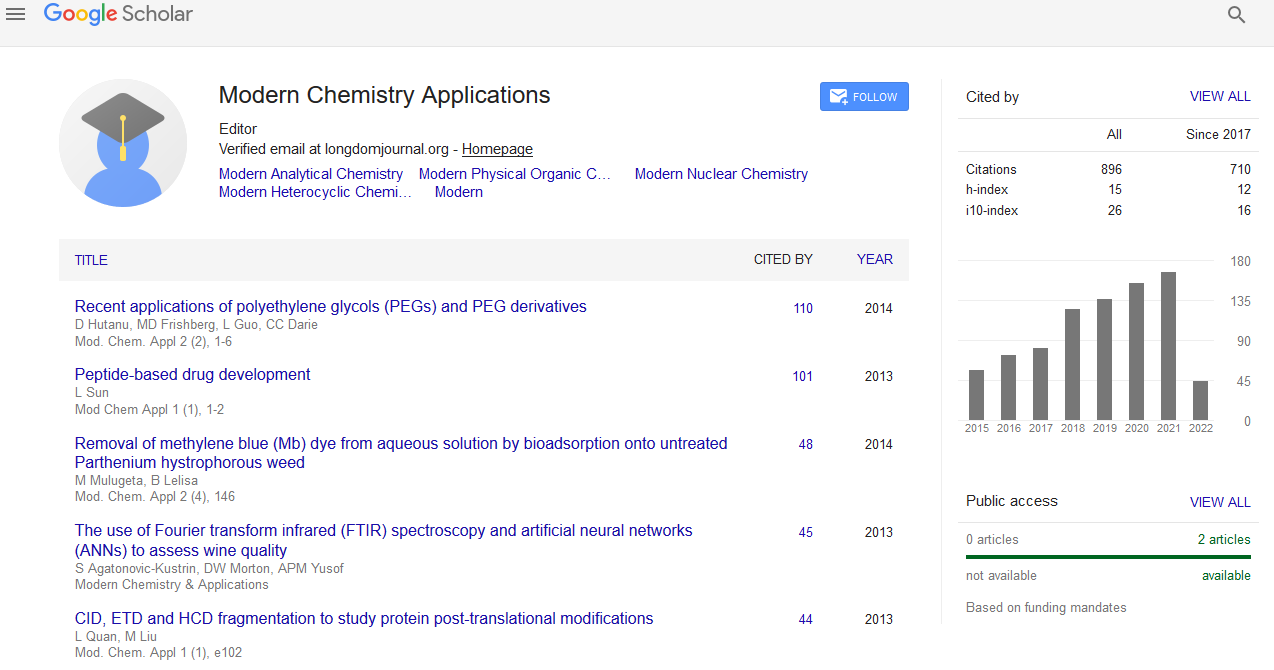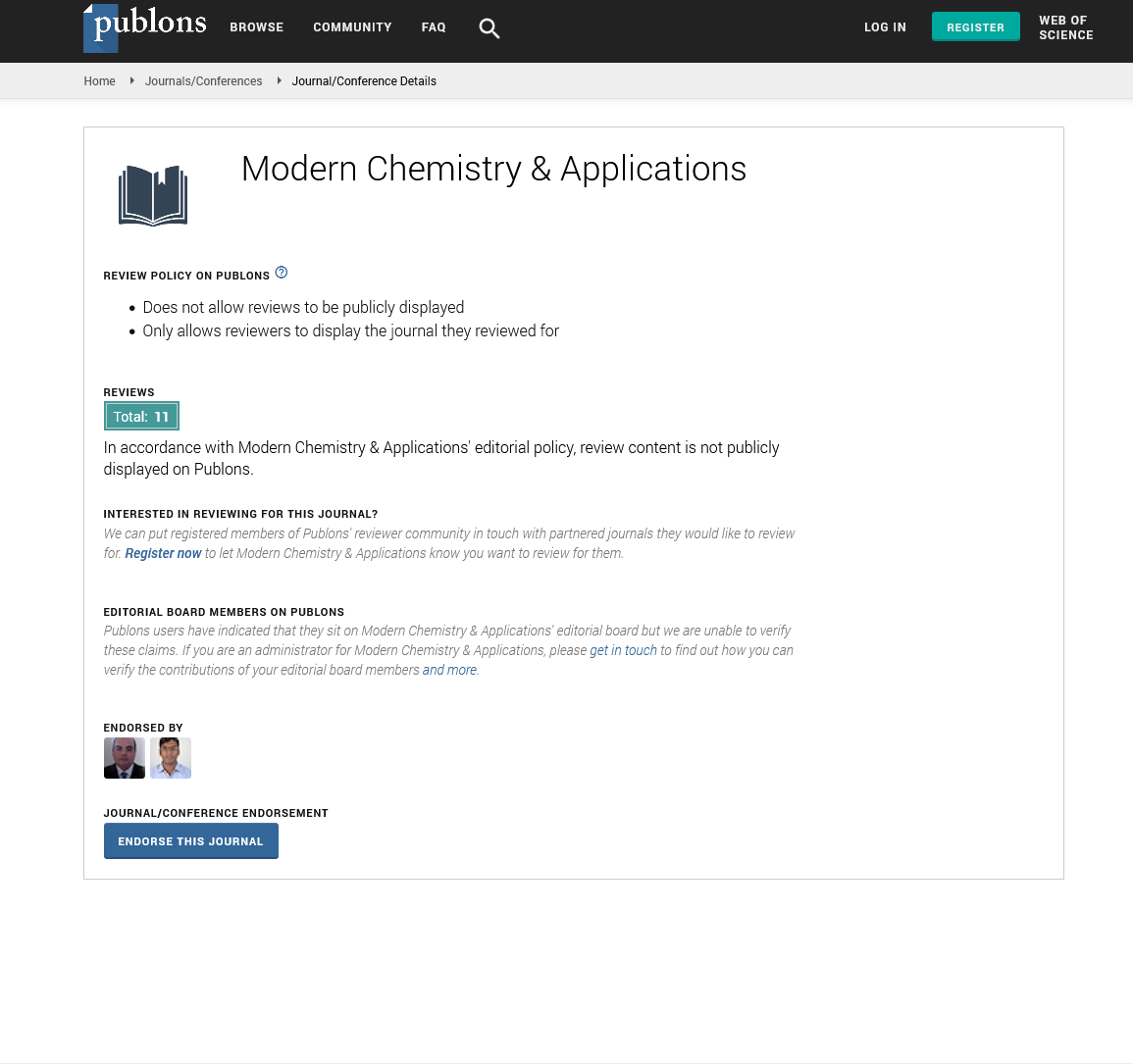Indexed In
- Open J Gate
- JournalTOCs
- RefSeek
- Hamdard University
- EBSCO A-Z
- OCLC- WorldCat
- Scholarsteer
- Publons
- Geneva Foundation for Medical Education and Research
- Google Scholar
Useful Links
Share This Page
Journal Flyer

Open Access Journals
- Agri and Aquaculture
- Biochemistry
- Bioinformatics & Systems Biology
- Business & Management
- Chemistry
- Clinical Sciences
- Engineering
- Food & Nutrition
- General Science
- Genetics & Molecular Biology
- Immunology & Microbiology
- Medical Sciences
- Neuroscience & Psychology
- Nursing & Health Care
- Pharmaceutical Sciences
Cross-flow microfiltration for cell recovery of an oleaginous yeast Rhodosporidium paludigenum for biofuels production
10th International Conference on Chemistry
May 09-10, 2019 | Amsterdam, Netherlands
Apichat Boontawan,Pongsathorn Poopisut, Chotika Gosalawit and Mariena Ketudat-Cairns
Institute of Agricultural Technology- SUT, Thailand
Keynote: Mod Chem Appl
Abstract:
A third-generation biofuel production was investigated in a 500-L bioreactor using an oleaginous yeast Rhodosporidium paludigenum. This strain contains high triglyceride content, and the main fatty acids are C14, C16 and C18 which are very similar to fatty acids found in vegetable oils. The yeast were cultured, harvested, and extracted the oil by using solvent extraction. After fermentation, a combined cross-flow microfiltration (MF) process of concentration and diafiltration mode was investigated for the recovery of yeast cell. The membrane fouling mechanism was investigated using cleaning method in order to evaluate the major factors causing in the flux decline. The flux of pure water was obtained at 80.05 L/m2.h corresponding to the membrane resistance of 3.1x1012 m-1. For MF of the whole broth, the flux sharply decreased and reached its plateau at around 10 L/m2.h until the end of experiment. Pure water was then added during diafiltration mode for the removal of all impurities. After cell harvesting, a chemical cleaning was applied in order to obtain the cake and adsorption resistances. After cleaning with pure water, the regained flux was obtained at 69.50 L/m2.h, and the regained flux after 1 wt% NaOH washing was 80.01 L/m2.h. As a result, the percentage of absorption resistance was 13.24%, and the percentage of cake was 86.76%, respectively. The yeast was dried by a spray dryer prior to extract the oil using hexane as organic solvent. After solvent removal, the lipid can be used as an appropriate raw material for biofuels production.
Biography :
Apichat Boontawan has graduated with the Bachelor’s degree in Food Science and Technology. He then got the Royal Thai Government Scholarship and received his Master’s degree in Biochemical Engineering from the University of Birmingham, and Doctoral degree of Chemical Engineering from Imperial College London, UK. He had an experience on ASEA-UNINET Postdoctoral research work at Vienna University of Technology, Vienna, Austria. He works as the Lecturer in the School of Biotechnology, Institute of Agricultural Technology, Suranaree University of Technology, Thailand. His research is now focusing on Bio-Separation, Fermentation, and Biochemical Engineering.
E-mail: apichat@sut.ac.th


